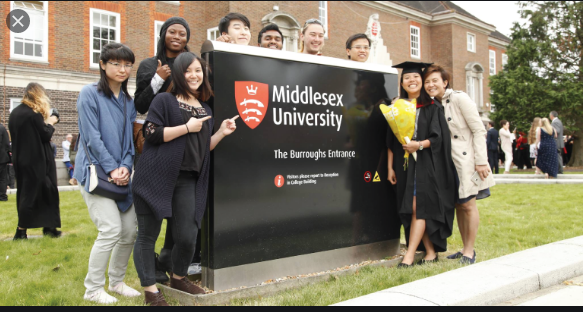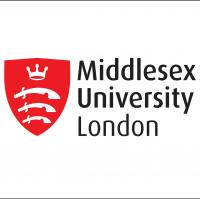Cancer Biomarkers and Therapeutics MSc
Overview
Our MSc programme will develop your knowledge and understanding of cancer diagnosis and therapeutics. The course will focus on up-to-date diagnostic techniques and emerging tumour markers and their potential applications in specific diagnostics for various types of cancers. In addition, you will be exploring drug delivery systems and learning to make drug carriers for targeting cancers using nanotechnology. You will also be trained to perform a range of molecular, cellular and proteomics laboratory techniques used for detecting tumour markers and monitoring therapeutic effects.
Why study MSc/PGDip/PGCert Cancer Biomarkers and Therapeutics at Middlesex University?
This programme will provide not only the necessary framework and general concepts in the cancer research field, but also an updated advanced knowledge of cancer diagnosis and treatment.
In addition, you will be led by experts who are in the front line of drug development and drug delivery and acquire useful novel laboratory skills using nanotechnology and Multiplex Immunoassay-NALIA system, which will equip you with the necessary/essential skills for pursuing a range of career options. You could also proceed to further scientific training or you would be well-equipped to carry out research.
A final dissertation project will be supervised by experts focusing on a variety of cancer research areas. You will be working in laboratories equipped with up-to-date instrumentation including matrix-assisted laser desorption ionization time-of-flight mass spectrometry (MALDI- Tof MS), liquid chromatography (LC)- MS, gas chromatography (GC)- MS, conventional and quantitative PCR, flow cytometry, Confocal microscopy, Licor Imaging system and fully equipped histopathology laboratory and tissue culture facilities.
Course highlights
- Acquire laboratory research skills in drug delivery using nanotechnology and multiplex immunoassays which stand at the frontline of the cancer clinical research arena
- Be taught by experts in the field of cancer research including academics and those working in the clinical area
- Develop expertise in a variety of laboratory techniques in our modern and well equipped laboratories forming part of the Centre for Investigative & Diagnostic Oncology led by Prof Ivan Roitt and Prof Richard Bayford.
Intakes
- Oct
Application Processing Time in Days: 30
Application Process
Minimum English Language Requirements
| English Level Description | IELTS (1.0 -9.0) | TOEFL IBT (0-120) | TOEFL CBT (0-300) | PTE (10-90) | |
|---|---|---|---|---|---|
| Expert | 9 | 120 | 297-300 | 86-90 | |
| Very Good | 8.5 | 115-119 | 280-293 | 83-86 | |
| Very Good | 8 | 110-114 | 270-280 | 79-83 | |
| Good | 7.5 | 102-109 | 253-267 | 73-79 | |
| Good | 7 | 94-101 | 240-253 | 65-73 | |
| Competent | 6.5 | 79-93 | 213-233 | 58-65 | |
| Competent | 6 | 60-78 | 170-210 | 50-58 | |
| Modest | 5.5 | 46-59 | 133-210 | 43-50 | |
| Modest | 5 | 35-45 | 107-133 | 36-43 | |
| Limited | 4 | 32-34 | 97-103 | 30-36 | |
| Extremely Limited | < 4 | < 31 | < 93 | < 30 |
Admission Requirement / Eligibility Criteria
Qualifications
We accept the equivalent of the below qualifications from a recognised overseas qualification:
- A 2:2 honours degree in Biomedical Sciences UG degree or equivalent.
To find out more about the qualifications we accept from your country please visit the relevant support in your country page. If you are unsure about the suitability of your qualifications or would like help with your application, please contact your nearest regional office for support.
Academic credit for previous study or experience
If you have relevant qualifications or work experience, academic credit may be awarded towards your Middlesex University programme of study. For further information please visit our Accreditation of Prior Learning page.
Visas and immigration
You will not need a visa to study in the UK if you are a citizen of the European Union, Iceland, Liechtenstein, Norway or Switzerland. If you are a national of any other country you may need a visa to study in the UK. Please see our visas and immigration page for further information.
- Course Type: Full Time
- Course Level: Masters/PG Degree
- Duration: 01 Year
-
Total Tuition Fee:
14000 GBP
Annual Cost of Living: 12006 GBP
Application Fee: N/A
Similar Programs
- Psychological Therapies and Interventions MSc / PGDip at Middlesex University London
- Cardiology MSc at Middlesex University London
- Data Science MSc at Middlesex University London
- Security MSc by Research at Middlesex University London
- Security MSc by Research at Middlesex University London
- Oncology MSc by Research at Middlesex University London

